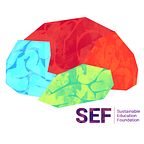Meet Sri Lankan Researcher — Kasun Bandara
What are you currently working on or worked on before?
I specialize in the area of Deep Learning for Time series forecasting, The main contribution of my thesis is to produce accurate and meaningful forecasts in the era of Big data, in situations where many related, similar time series are available, overcoming the limitations of the existing traditional time series forecasting methods. Big tech giants such as Amazon, Microsoft, Uber have recently started to untap this research space in very successful ways. As a result, this research area is becoming an important focus point in the field of time series forecasting. Over the past 3 years, I have been developing novel forecasting architectures in collaboration with research scientists from Uber and Walmart Labs.
What encouraged you to pursue your research topic?
Nowadays, time series forecasting has become an essential tool for organizational decision-making processes. This includes demand planning for product manufacturing, arranging service needs for consumers, organizing predictive maintenance, and predicting econometric indicators. As a result, forecasting is heavily used in many industries such as retail, food, railway, mining, health-care, tourism, energy, and cloud-computing.
Another important trait of forecasting is that even a small improvement in the accuracy can lead to significant savings and cost reductions for an organization. Also with the advent of Big Data, many application databases containing large quantities of related time series are continuously growing. So, generating accurate and reliable forecasts under these circumstances is becoming a challenging task for many stakeholders.
Therefore, the cross-disciplinary nature of time series forecasting and its potential impact towards society has encouraged me to pursue this research topic.
What is the name of your current institute?
Monash University, Faculty of Information Technology.
Where do you find your best inspiration for your work?
From the research community, research collaborators, and most importantly from the real-world problems that are often challenging to tackle.
Can you share with us some of your publications?
Yes, this is my Google Scholar page.
What’s one of your biggest personal achievements so far?
My achievements include obtaining a PhD scholarship from one of the leading universities in Australia, securing a fully paid data science internship at Walmart Labs in San Francisco, USA, collaborations with world-leading research scientists from Uber, Walmart, and making impactful contributions to my research sphere, publishing highly impactful research at quality journals and conferences, achieving top scores in the data science competitions, and also getting nominated for the Monash University, Faculty of IT Teaching associate award in two consequent years, 2018 and 2019.
What lessons would you share with a budding researcher?
The rate of failure in research projects is often high, and there is a high chance of being unsuccessful in your initial attempts or experiments. Therefore, the resilience and the ability to cope up with failure are important qualities to be developed as a successful researcher. Also, be proactive and keep looking for the opportunities to expand your knowledge by building connections and seeking research collaborations, hackathons, conferences, and technical gatherings in your field. Also, keep up to date with the developments in the area of your expertise.
What motivated you to be a researcher?
The ability of researchers to continuously innovate and endlessly push the knowledge boundaries of human-kind to make a better world for the next generations.
If there is a chance, will you help build research in Sri Lanka?
Yes, of course, and in fact I have been helping Sri Lankan students, by mentoring their research projects and in some cases, assisting them with the postgraduate scholarship application processes.
According to your opinion, what are the changes that the Sri Lankan education system needs to do, in order to meet the requirement of the international industry and academia?
At the moment, the Sri Lankan education system focuses more on the theoretical aspects (limited to the textbook) in the syllabus and invests lesser time on applying theory into practice. Starting from the school curriculum, the government must implement proper initiatives to bridge the gap between the theoretical and practical aspects of education. Especially, our university curriculum must be up to date with the global university standards, to minimize the knowledge gap of our students, so they are ready to undertake their further studies at the international level. Also, more recognition must be given to the research community in Sri Lanka, by giving more funding opportunities, facilitating international collaborations, and building strong relationships between the government and academia. Also, introducing and promoting novel subject areas (according to local and international market demand), which are not only limited to engineering and biomedical discipline. And most importantly, the current teaching practices in Sri Lanka must embrace the two-way teaching and learning experience, by giving students the opportunity to question and interact with the teacher/lecturer.
